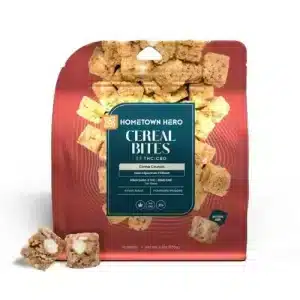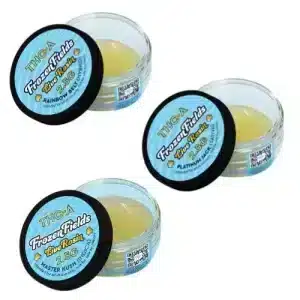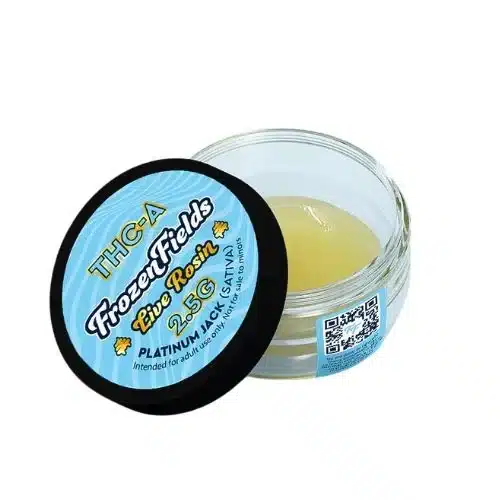
How can CBD enhance a plant-based lifestyle? The relationship between a plant-based diet and CBD goes beyond trendy wellness buzz. It’s rooted in how cannabinoids support digestion, reduce inflammation, and help the body stay balanced. Whether you’re new to clean eating or already deep into plant-powered living, integrating CBD into your daily habits can help you get even more out of your nutrition and self-care routine.
At Carolina Hemp Hut, we’ve seen firsthand how customers using both cannabis and plant-based nutrition report better digestion, less stress, and smoother transitions away from animal-heavy diets. In this article, we’ll explore how CBD works with your endocannabinoid system to amplify the benefits of a plant-based diet, and we’ll share real tips to help you align cannabis with your health goals in a way that feels natural and sustainable.
Why Cannabis and Plant-Based Living Go Hand in Hand
The synergy between cannabis and a plant-based diet is undeniable. Both are rooted in natural, plant-derived wellness, offering a holistic approach to health that aligns with the growing interest in clean living. Customers frequently inquire about how cannabis can enhance the benefits of their dietary choices, seeking ways to integrate these two powerful elements into their lives.
Cannabis is not just a supplement but a wellness ally that can support and amplify the benefits of a plant-based lifestyle. Understanding how these two elements work together unlocks a new level of holistic health.
Key Benefits of a Plant-Based Diet
A healthy plant-based diet offers a range of health benefits, beginning with improved heart health. Diets rich in not only fruits and vegetables, whole grains, plant-based protein, and healthy fats are known to include foods primarily that:
- Reduce the risk of cardiovascular disease
- Improve metabolic health
- Aids in weight management, making it easier to maintain a healthy body weight
- Reduce the risk of chronic diseases and offer potential health benefits.
One of the standout advantages of plant-based diets is their anti-inflammatory and antioxidant properties. Plant foods are rich in antioxidants and polyphenols, which work synergistically to combat inflammation and oxidative stress, contributing to overall vitality and disease prevention and promoting environmentally friendly choices.
Moreover, the high fiber content in plant-based foods supports gut health, promoting better digestion and nutrient absorption. This increased fiber intake can lead to improved bowel regularity and a healthier gut microbiome, which are essential for overall wellness.
The Link Between Obesity, Inflammation, and Diet
Obesity is a global epidemic that affects millions of people worldwide. Studies have shown that a plant-based diet may be effective in combating obesity due to its high fiber content, low-calorie density, and low fat content. In this article, we will explore the science behind plant-based solutions to obesity and provide tips for those looking to transition to a plant-based diet.

Obesity and Diabetes: The Connection and Plant-Based Solutions
Excess body fat and chronic inflammation are closely linked to a range of chronic diseases, including cardiovascular disease and type 2 diabetes, increasing the risk of heart disease and coronary heart disease. These conditions often stem from unhealthy eating habits that lead to insulin resistance and metabolic imbalances. A diet high in highly processed foods and sugar-sweetened beverages, and low in nutrients, can exacerbate these issues, leading to weight loss, weight gain, increased inflammation, and elevated blood pressure, contributing to heart disease.
Plant-based diets, on the other hand, offer a promising solution. Studies have shown that individuals who follow a plant-based diet have better weight control and a significantly lower risk of several diseases compared to those with non-vegetarian diets, including those who eat meat. The nutrient-dense, minimally processed foods typical of plant-based eating can help reduce inflammation and support long-term health, including those who adhere to vegan and vegetarian diets and a vegetarian diet.
Transitioning to a plant-based diet can significantly impact human health by addressing the root causes of many chronic conditions. By choosing whole, nutrient-rich foods, you can reduce the risk of obesity and inflammation, paving the way for a healthier future.
Where Cannabis Fits In: Complementing a Clean-Eating Lifestyle
Cannabis can play a meaningful role in supporting a clean-eating lifestyle. It doesn’t replace healthy food choices, but it can help your body adjust and thrive as you shift to plant-based eating. From digestion and appetite to inflammation and recovery, cannabinoids offer support where your system might need a little extra help.
Supports Digestive Health and Gut Adaptation
Switching to a high-fiber diet can be hard on your digestive system at first. All that fiber is great for long-term health, but it can cause bloating, cramping, and discomfort in the beginning. Cannabis may help with this transition. It works through the endocannabinoid system (ECS) to calm gut inflammation and ease digestive stress.
Cannabinoids like CBD can also help protect the gut lining. This helps your body absorb nutrients better and keeps toxins from leaking into your bloodstream. That’s a big deal when your goal is to feel energized and nourished from the inside out.
Regulates Appetite and Blood Sugar
Changing the way you eat often means dealing with cravings. You might also find your blood sugar levels bouncing around more than usual. Certain cannabinoids can help smooth this out. THCV, for example, has shown promise in reducing appetite and supporting better energy balance.
CBD may help with insulin resistance and improve how your body responds to sugar. Together, these compounds can help you stay steady—physically and emotionally—while your eating habits shift. Cannabis doesn’t do the work for you, but it can help you stick to your goals with less struggle.
Reduces Inflammation for Whole-Body Health
Inflammation is at the root of many chronic conditions, including heart disease and autoimmune issues. A plant-based diet is already a powerful tool for lowering inflammation. But adding cannabinoids like CBD, THCA, and CBG may increase these benefits even more.
These compounds are known for calming inflammatory responses in the body. When combined with the antioxidants in plant foods, you get a stronger layer of protection against everyday stress and disease. The result? Less discomfort, more mobility, and a better shot at long-term health.
Helps with Stress, Sleep, and Habit Change
Let’s be honest—changing how you eat is hard. It’s not just about swapping ingredients, it’s about reshaping habits. That can take a toll on your mood and energy. Cannabis may help with this, too.
Using calming cannabinoids can support better sleep, lower stress, and improve your overall mood. When you feel more grounded, it’s easier to stay consistent. Whether it’s a CBD gummy before bed or a soothing strain during meditation, these moments of support add up. They make your transition to a new way of eating feel less like a fight and more like self-care.

Making the Switch: Plant-Based Diet Tips with Cannabis in Mind
Start where you are. You don’t have to go vegan overnight. Begin by gradually reducing your intake of meat and dairy products. Easing into it helps your body adjust and gives you the space to explore new meals without pressure. As you begin this journey, aim to add more vibrant, colorful plant foods to your plate. These not only enhance flavor but also support a well-rounded nutrient profile.
It’s also helpful to track what’s working for you. Whether it’s noting how certain meals make you feel or keeping tabs on new favorite recipes, tuning in to your body’s responses can help fine-tune your habits. And if you still include some animal products, do it mindfully. This is about making empowered, informed choices, not following rigid rules.
Cannabis can be a powerful ally in this shift. Many people find that it helps reduce stress and curb cravings, especially when emotions or habits start to challenge their goals. Whether it’s a CBD gummy during meal prep or a calming strain before meditation, integrating cannabis intentionally can reinforce your new routines. Choosing the right strain and timing it to your lifestyle makes a difference, supporting not just your body but also your mindset. We’re not aiming for perfection here. We’re aiming for progress that feels good.
Choosing the Right Products for Plant-Based Goals
If you care about what goes in your body, that should include your cannabis, too. Look for products that are vegan-friendly and made without animal-derived ingredients. Full-spectrum and broad-spectrumblends tend to offer a richer, more balanced experience thanks to the entourage effect, and terpene-rich options can further enhance how cannabis pairs with your diet. We also recommend choosing organically grown hemp and always checking for third-party lab testing, transparency matters.
At CHH, we’re picky for a reason. We only carry what we’d use ourselves. Whether you’re new to cannabis or refining your routine, we’re here to guide you, not upsell you. Supporting your goals means helping you choose products that actually fit your lifestyle and values.
Science-Backed Benefits of Plant-Based Living
If you’re the kind of person who likes to know why something works, science has your back. Plenty of research supports the benefits of pairing cannabis with a plant-based lifestyle.
Let’s start with the food. Studies show that diets rich in fiber, fruits, veggies, and whole grains can help reduce obesity, type 2 diabetes, and inflammation. One well-known study inJAMA Internal Medicinefound that people on a plant-based diet lost more weight and body fat than those following a low-fat diet, even without tracking calories.
Meanwhile, cannabis research is growing fast. Cannabinoids like THC, CBD, and THCV are being studied for how they impact metabolism and appetite. THCV, for example, may help reduce hunger and support energy balance. Some early research suggests it could help people who struggle with overeating or weight-related issues.
You don’t need a medical degree to know when something is working. When you swap out processed foods for colorful, real ingredients and back that up with the right cannabinoids, you start to feel the difference. More energy, less inflammation, and a calmer mind.
That’s what this is really about. A lifestyle that feels good and does good.
What Cannabis Researchers Are Discovering
Meanwhile, cannabis researchers have been exploring how cannabinoids like THC, CBD, and THCV affect metabolism and appetite. THCV, in particular, has shown early promise in helping suppress appetite and improve energy balance. A few animal and human studies suggest it may be helpful for people struggling with overeating or metabolic disorders but of course, more research is always welcome.
And it’s not just the compounds, it’s the people behind the movement, too. Think Dr. Michael Greger from NutritionFacts.org, who’s spent decades breaking down the power of plants for disease prevention. Or Dr. Ethan Russo, a neurologist who’s helped us understand how cannabinoids interact with the endocannabinoid system in ways that support everything from appetite regulation to inflammation control. These leaders are showing us that when we take a holistic approach to healing, one that honors both the science andthe soul, we get better outcomes.
You don’t have to be a doctor or a dietitian to know when your body is thanking you. When you start replacing heavily processed meals with real, colorful food, and you support that shift with the right cannabinoids, you start to feel it. More energy. Less pain. A little more peace.
That’s what we’re after.
Rooted in Plants, Elevated with Cannabis
Combining a plant-based diet with cannabis offers a holistic approach to health and wellness. Both paths are rooted in natural sources, providing a comprehensive way to enhance your well-being. This combination can elevate your lifestyle, making it more balanced and fulfilling.
We invite you to explore these pathways further, visit our store, or reach out for personalized advice to help you on your journey. Embrace the power of plants and discover the transformative potential of integrating cannabis with your diet.
Disclaimer:
The products sold at Carolina Hemp Hut have not been evaluated by the Food and Drug Administration (FDA). They are not intended to treat, cure or prevent any disease. We are not staffed by doctors; we cannot recommend products to “cure” anything. Please talk to your medical professional before starting a new supplements.
Frequently Asked Questions
THCV, or tetrahydrocannabivarin, is a cannabinoid known for its energizing and appetite-suppressing effects. Unlike THC, it may help reduce cravings and support metabolism, making it a potential ally in weight management.
Yes, THCV and CBD can complement each other. While THCV may promote energy and appetite control, CBD helps regulate mood and stress—two key factors in healthy weight habits. Many products, like CBDism’s THCV tincture, combine both cannabinoids for balanced support.
Start with the suggested serving size on the label, usually 0.5 to 1 dropper under the tongue. Use it consistently in the morning or before meals. As always, listen to your body and adjust if needed.
No, THCV is non-psychoactive at low to moderate doses. Unlike Delta 9 THC, it doesn’t cause a traditional cannabis high, so it’s safe to use during the day for focus and energy.
Yes. CBDism’s THCV tincture is derived from federally legal hemp and includes third-party lab testing to ensure potency, purity, and safety. You can find the COA linked on the product page.










